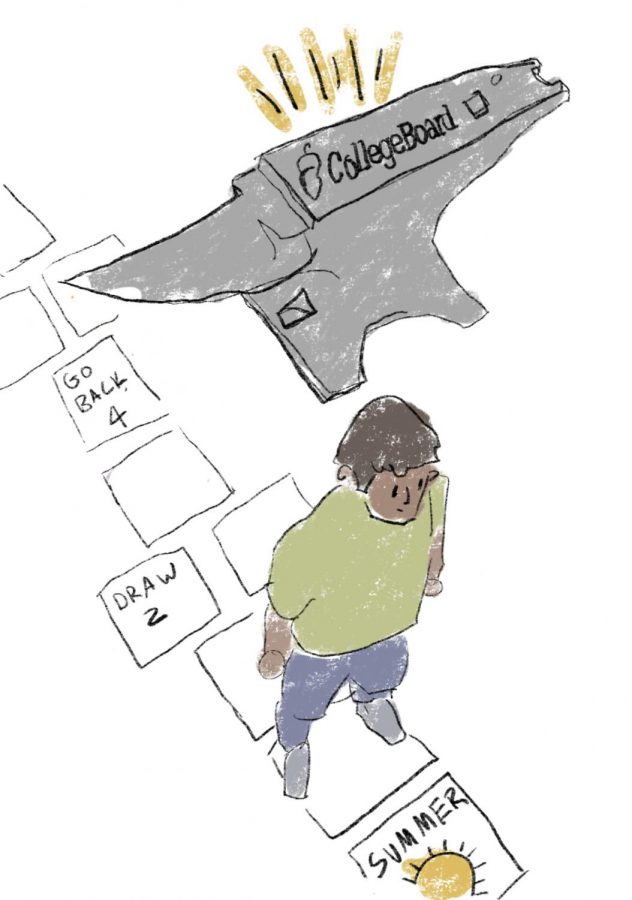College Board’s 2021 AP Exams are Problematic
May 30, 2021
For the 2021 AP exams, College Board provided several test dates and online and in-person options for school administrators to choose between. However, that’s about where the pros of this year’s testing system end.
On digital exams, students are unable to move back and forth between questions. No options are provided for uploading written work (all mathematical questions must be typed) and no solutions have been offered for the internet issues students faced last year. Equity issues are also present; if students without the necessary technology to complete the exams at home (disproportionately low-income, BIPOC youth) must find an in-person option, these communities are put at a disproportionate risk of contracting COVID, the same demographics that face systemic barriers to vaccination.
For many students across the country who have not seen in-person classrooms in a year, there are also fears of weakened preparation for these assessments in comparison to past years due to decreased instructional time and the fact that many students find it difficult to engage fully in digital learning for long periods of time. Decades of research have shown a correlation between household income and standardized testing performance due to, among other factors, the ability to pay for tutors or prep courses, and inequity in the funding of public education. Online classes have only exacerbated existing educational inequity among students, particularly those without the resources for good Wi-Fi connection or difficult home situations, as well as those working jobs to support their families during the pandemic. We also can all attest to the effects of Zoom fatigue by this point; many find digesting content exclusively online draining and difficult. Depending on the decision of their school administrators, Muslim students are forced to take exams during their observation of Ramadan.
The College Board appears to have no intention of addressing the effects of this school year’s unique circumstances on the mental and physical well-being of students, however. The organization has not acknowledged numerous calls from students and educators to waive the exorbitant exam fees this year despite all its extenuating circumstances which have hit low-income students hardest, the very demographic for whom those fees can serve as a barrier. However, the College Board has offered full refunds to students who feel unprepared to test and has removed its exam cancellation fee. Many argue that the fact students have to pay for the chance to receive a coveted score that may or may not transfer into college credit is outrageous given how stressful the process is for most.
If exam fees were universally waived for this year, students were able to move freely between questions during each test, and the tests focused on content found in accessible study materials, that would be a start towards a more equitable future of standardized testing. Sadly though, students are left with no option but to jump through the hoops imposed by this organization throughout the exam dates in May and June if they want to reap any possible credit, which can save them thousands of dollars in tuition money. I wish all students taking AP exams successful testing, but even stepping into that exam room this year is an accomplishment in itself, whether or not you achieve a coveted score.










